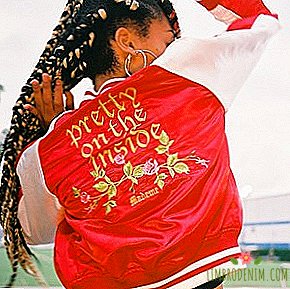Everyone is free: What is "anarchy of relationships"
Today, more and more people are building relationships without regard to the scheme "fell in love, got married" or "lived happily and happily and died on the same day." “Traditional marriage”, as it is still represented, is in fact not at all traditional, and modern legal norms do not always correspond to the needs of partners. So there are new models and approaches. We talk about one of them - anarchy of relations.
Text: Irina Kuzmicheva

Unlimited resource
The term and philosophy of "relationship anarchy" was invented by the Swede Andy Nordgren - queer, asexual and aromatic, former executive producer of sci-fi online game Eve Online. In 2006, Andy wrote a manifesto of relations anarchy in Swedish, and later translated it into English. Since the concept is not yet fifteen years old, the manifesto remains the main source of information on the topic — and the philosophy of anarchy of relations is actively shaping the community right now.
“The anarchy of relationships calls into question the idea that love is a limited resource that only becomes“ real ”when it comes to a couple. You can love more than one person, and relationships with him and love for him do not lessen love for others. Do not build hierarchies and do not compare relationships and people with each other — value each one individually and the relationship between you, ”writes Nordgren.
The main essence of the manifesto - the relationship with each person is unique and is built according to its own rules. The nature of relationships is not important: they can be partnering, sexual, romantic, working or friendly, people can be tied by common interests, joint activities, correspondence on the Internet or anything else. Participants in anarchic relationships decide for themselves what they want to do with each other - and prefer not to hang tags.
The nature of relationships is not important: they can be partnerships, sexual, romantic, working or friendly
Anarchists are equally important in any relationship, and every person with whom they are built. “It happens that people, starting relationships, define them as“ romantic ”and behave accordingly. The anarchy comes from the opposite: you understand what is happening between you, what you want; if it does not fit into the usual categories, then you trying to shove it somewhere, and doing what you need. Such an approach gives a lot of freedom, ”explains the author of the Alexandram telegram channel, Relationship all around us.
Daria Andreeyeva, a feminist, polyamorca and author of the telegram channel “A little about non-monogamy,” believes that anarchy helps to deconstruct the concepts with which we are used to denote relationships, and think carefully about what is behind them for each of the participants. “Accordingly, anarchists can experience any kind of feeling and engage in any joint activity,” explains Andreeva.
Without rules and hierarchies
In a broad sense, anarchy, as an ideology, rejects the generally accepted rules - so that in anarchy there are no relations either. Many of those who adhere to it, say that the lack of rules refers primarily to the norms imposed "from above": laws, traditions of society and so on.
"The anarchy of relations is based on three principles: no power, no labels, no rules," says Sobi Bugammer, a practicing psychologist, polyactivist, author of the telegram channel "Okay, what does Sobi write about?". Instead of the rules here - the observance of alien boundaries, and at the head of the corner - the autonomy of each person and the understanding that all relationships are equal and among them there is no conditionally “main”. Communication is built at the intersection of the borders and the needs of each participant or participants. The refusal of labels, according to Sobi, is due to several reasons. The first is that they impose restrictions on needs. For example, you have always considered a person a friend, but suddenly fell in love with him or her. At this moment, the torment begins: "What if I ruin everything in our friendly relations?" So attention to labels prevents enjoy the feelings and act in accordance with the desires, says Sobi.
Daria Andreeva agrees with the negative influence of stereotypes: “When we think about whether love can be part of anarchic relationships, we simply juggle with terms and try to figure out which label to stick. This is useful when you need to describe the experience in commonly understood words, but it doesn’t help approaching essence of the phenomenon. "
The main difference between polyamory and anarchy is that in the relations of the first type there is often a hierarchy, and in the second it cannot be in principle
The second reason is that behind labels there can be a space for abuse of power and manipulation, which also has no place in an anarchic alliance. For example, a partner believes that you are obliged to report on everything that is happening to you: "You're my girl, it means you must!" In anarchic relationships, such constructions are impossible — simply because no one owes anything to anyone. Finally, the third reason is that we are used to label relationships from more important to less important with the help of labels, but in anarchist philosophy, all relationships are equal, regardless of closeness and duration.
Alexandra is sure that anarchy of relations is not about rules and prohibitions, but about freedom and honesty: "I am honest with myself and others about what I want and what I need. It would be a deception to say that only partnerships are important to me, but friends , lovers and other people are secondary. "
At first glance, it seems that any relationship involving more than two partners can be called polyamorous - but these are intersecting, but not equivalent categories. The main difference between polyamory and anarchy is that in the relations of the first type there is often a hierarchy, and in the second it cannot be in principle. In polyamoria, labels can also be used to denote different relationships - sex partner / sex partner, girlfriend / friend, colleague. Finally, polyamorous relations are often based on the rules: “Clients sometimes come to me, whom their beloved placed in the rules without their consent. Of course, the person takes the decision whether to stay in such relations or not. But there are various reasons why it is not easy break the relationship, says Sobi.

Monogamy and marriage
Monogamy as the sexual and romantic exclusivity of two partners may be present in the anarchy of relationships, but this is not necessary. Someone is enough one partner or partner, others do not want to limit themselves, others may be aromatic or asexual.
To many, the ideas of anarchy and monogamy seem incompatible, since monogamy can imply strict limitations. Sobi explains why she chose the anarchy of monogamy: “I was in a typical monogamous relationship, and I was terribly close to them. I squeezed myself and my needs to the needs of another person. It was not me, but some kind of“ correct girl ”. When I started practicing anarchic relationships, I began to listen to myself, I became more conscious, I began to allow myself more. This concerns not only the desire to look at a beautiful person who is not my partner, but also feelings — when you live in a mononormative world, even to feel Of course, I could have realized all these things in a monogamous relationship, but in our culture the propaganda of toxic monogamy is strong, and it was difficult for me to see something else. "
Daria Andreeva believes that anarchy is not directly related to monogamy or non-monogamy. "This is a fundamentally different characteristic, or rather, another optics," she says, adding that the antonym of anarchy of relations is hierarchy. In this case, the person, consciously or not, distributes all his relations by priority: number one, number two, and so on. The blogger gives an example of hierarchy in friendship: “In my childhood it was customary to have a best friend or girlfriend, it was very important. The answer like“ all friends are important to me ”could be easily offended, and trying to change the opinion about who is the“ best ” equated with betrayal. " Relations with an eye toward independence imply that their participants do not think about priorities, but instead individually approach each situation.
Antonym of relationship anarchy - hierarchy. In this case, the person, consciously or not, distributes all his relations according to priority
Is marriage possible in anarchic relationships? Yes, if we are talking about a modern partner marriage, and not a traditional patriarchal marriage - although, of course, not everyone thinks so either. Daria Andreeva is convinced that it is important to consider marriage as a set of agreements and practices (for example, partners live together or have a common budget), and not as a super-goal: "I live with my husband, we raise a common child together. But at the same time I adhere to the anarchy of relations and try to avoid hierarchies. "
Author "Okay, what does Sobi write about?" notes that anarchy of relations is incompatible with violence, hierarchy, power: “If they are not married, I don’t see a problem. At its core, anarchy denies patriarchal institutions because they are imbued with power, and marriage is one of these institutions. However from the point of view of modern realities (the Family Code, for example) it is possible to conclude marital relations ". The only thing that confuses Sobie is the monogamous nature of marriage, which most countries allow to enter into with only one person. “I’m also sure that external pressure is increasing if you practice“ non-standard relations ”: as it is possible, because this is a marriage,” adds Bugammer.
Jealousy and agreement
Anyone in any type of relationship may face jealousy, and the anarchic approach is no exception. Sobie believes that the main thing is to understand why it arises: “If a person is afraid, not confident in himself or in a relationship, worries that he will be replaced or forgotten, then jealousy may appear. This is solved by psychotherapy and conversations with those addressed to whom this feeling". Alexandra admits that in such situations she is sad and ill, but she does not always feel that she has the right to complain: “In an anarchic relationship I like that I recognize the significance of certain relationships for me. Then jealousy turns out to be a signal that something is wrong and the reason to see why I feel bad. If the second person shares this philosophy and our relationship is also important to him, it is usually possible to understand what went wrong and change the situation. "
"Relationships are a dynamic process, they are not cast in bronze once and for all," says Andreeva. Therefore, talking about what your relationship is, what they mean to you, what you want from them and what you expect from your partner or partner is essential for any respectful relationship, whether anarchic or not. And they should occur not only "on the shore" or "according to the results", but constantly. “There is even a special word for this -“ processing ”,” she explains.
Sobie specifies: “We are not talking about conditions, but about borders. Anarchists are discussing what each of them wants and does not want - it just helps to see the borders. We do not proceed from one agreement, but create new ones every day. Otherwise, we start perceive each other "by default", and this is not about the anarchy of relations. " Alexandra believes that the earlier you start discussing relationships, the less likely you are to face unpleasant surprises. This is true for any model, but in such a free approach as anarchy, this is especially important. If one or all partners do not want to do what they did before, you should find a new optimal option.
In anarchy, it is important to constantly negotiate boundaries. If one or all partners do not want to do what they did before, you should find a new best option.
After a hierarchical model, it may be difficult for many to switch to an anarchic approach. “At first, there is a need to streamline and define everything. It is important for people to name an object, phenomenon or event, to understand the rules of the game. When rules are blurred and turn into dynamic boundaries, it can be difficult,” warns Bummager.
The main problem faced by Alexander and Sobi is that anarchic relationships require a lot of reflection, discussion and work from all participants: not everyone agrees to talk about relationships ("We're just friends, what is there to discuss?"). But even if a person is ready for discussion, difficulties may arise: figuring out how such relationships should be arranged can be very energy-intensive, and the more partners and partners, the more effort is required to provide everyone with comfort.
Sobie notes that people are often confused by the lack of labels. “Before, I could say:“ We are meeting, therefore we are doing this. ”Now I understand that it can be different, it’s important for me to understand feelings and needs - my own and other people. At first it can be difficult. Some people with whom I am just starting a relationship, sometimes they decide that I get to the bottom of it, when I clarify, ask again, ask questions. And I want to understand them better. " The biggest difficulty, says Sobi, arose when she faced a situation that she hadn’t discussed in advance: “What will we do if there are several of our lovers in one place?”
Photo: NARUEDOL - stock.adobe.com (1, 2, 3)





